Let me introduce the important Japanese phrase “一期一会 (Ichigo-Ichie)”, which expresses the heart of treating others with sincerity and kindness.
I already mentioned this phrase briefly in my previous post Summer in Japan: Beauty, Heat, and the Risk of Heatstroke. At that time, I encouraged foreign visitors not to hesitate to ask Japanese people for help in case of emergency.
Sometimes at the beginning, Japanese may look uncooperative because many of us are not fluent in English. But in fact, we are kind and caring, and we try our best to support others. This attitude is deeply connected to the spirit of Ichigo-Ichie, a phrase that has been nurtured through our long history influenced by Buddhism and other teachings.
Today, this concept is still alive in Japanese daily life and especially in the service industry. Airlines, hotels, and restaurants often use the phrase to express their sincere hospitality.
In this post, let us explore the meaning, history, and modern application of Ichigo-Ichie.
Meaning and Origin of “Ichigo-Ichie”
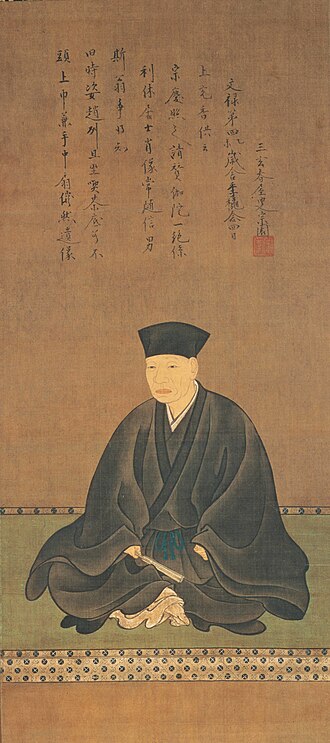
The phrase consists of two parts:
- 一期 (Ichi-go): one lifetime, one period of life
- 一会 (Ichi-e): one encounter
Together, it means “just one encounter in a whole lifetime.”
The phrase was introduced by Sen no Rikyū (1522–1591), the master who perfected the Japanese Tea Ceremony (茶道 Sado). The word “道 (Do)” in Sado means a way of life or spiritual path, just like in Judo, Kendo, or Kado (flower arrangement).
For more about the Japanese concept of “Do,” please see my post: Do: The Japanese Spirit.
In the Tea Ceremony, the host must treat the guest with the greatest sincerity, as if this were the only meeting in a lifetime. Every bowl of tea, every tool, and the atmosphere must be prepared with utmost care. This teaching is deeply rooted in Zen Buddhism.
Zen Philosophy and the Tea Ceremony
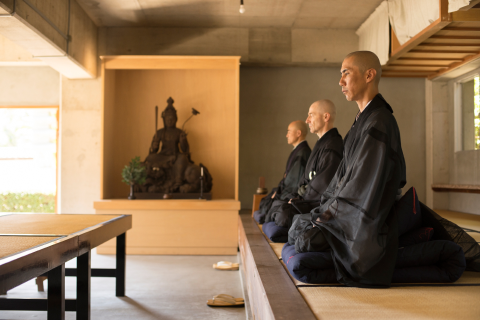
The use of powdered green tea (matcha) was first introduced from China in the 12th century by Eisai (1141–1215), a Zen priest who also founded Kennin-ji Temple in Kyoto. Eisai is also said to have planted the first tea trees in Japan.
Later, Dogen (1200–1253), another Zen priest, brought the practice of tea drinking in Zen temples from China to Japan. Tea was used as part of monastic life: before meditation, after meals, and before sleeping. In this way, tea became embedded in the total training of Zen monks.
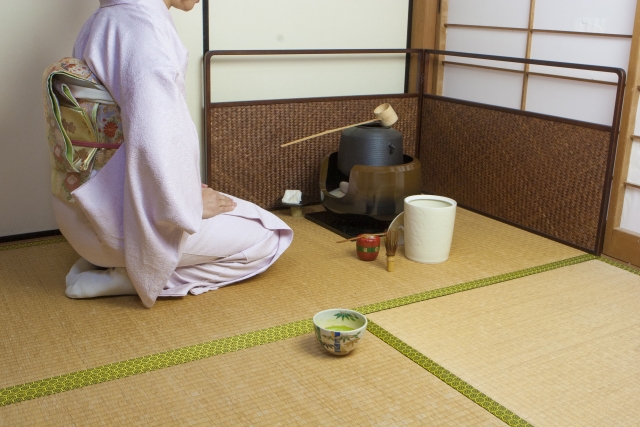
By the 16th century, the Tea Ceremony was refined and perfected by Sen no Rikyū, establishing the style we still follow today. From the beginning, the Tea Ceremony and the philosophy of Zen have been deeply connected.
Modern Japanese Spirit of Ichigo-Ichie
The philosophy of Ichigo-Ichie has spread far beyond the Tea Ceremony. It influences the way Japanese people behave in daily life and is especially visible in industries where hospitality matters most.
✈️ Airline Industry
Japan’s leading airlines, Japan Airlines (JAL) and All Nippon Airways (ANA), embody this spirit in their service. They often express Ichigo-Ichie in their hospitality, which has helped them receive high rankings in international awards such as SKYTRAX World Airline Awards.
When you fly with JAL or ANA, you can truly experience this warm and sincere service. They are ambassadors of Ichigo-Ichie. From the moment you board, you’ll notice the subtle gestures: a warm greeting, a perfectly timed service, and a quiet attentiveness that makes you feel seen.
If you’re planning a journey to Japan, why not begin with a flight that embodies this philosophy?
✈️ Looking for a flight that reflects the spirit of Ichigo-Ichie?
Japan Airlines (JAL) and All Nippon Airways (ANA) are known for their exceptional hospitality.
Use Aviasales to compare flights and look for JAL or ANA options: (Tip: After opening the search results, use the airline filter to select JAL or ANA for a more refined experience.)
🏨 Hotels and Ryokan (Japanese Inns)

Japanese hospitality in hotels and traditional ryokan is well known among foreign visitors. From check-in to meal service, staff members show heartwarming care inspired by the Ichigo-Ichie spirit.
For example, Arima Grand Hotel in Hyogo Prefecture highlights this philosophy in its approach to guests. Staying in Japanese hotels or ryokan is one of the best ways to feel Ichigo-Ichie in action.
Hotel stays in Japan are more than just a place to sleep—they are quiet invitations to experience Ichigo-Ichie.
Whether you choose a traditional ryokan with tatami floors and hot spring baths, or a modern hotel with impeccable service, each moment is crafted with care and sincerity.
🏨 Find your perfect stay in Japan:
・Booking.com ・Trip.com ・Agoda ・Expedia
🏨 Discover once-in-a-lifetime experiences in Japan : Beyond places to stay, Japan offers countless encounters—from tea ceremonies and local food tours to day trips and cultural workshops.
・Klook ・GetYourGuide ・Tripadvisor
Every night in Japan can be a once-in-a-lifetime encounter.
🍜 Everyday Encounters
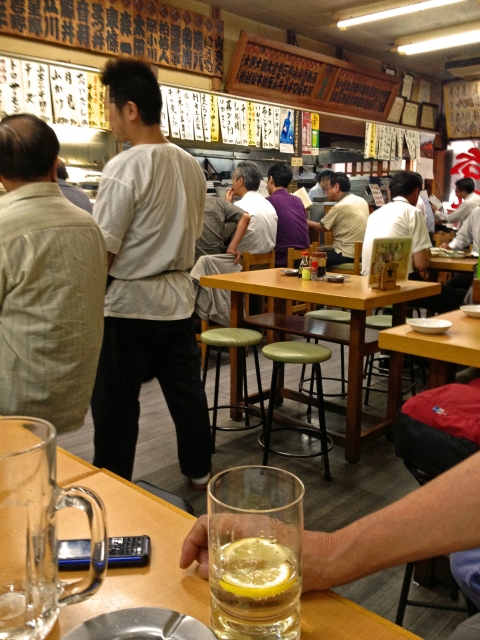
Even in small restaurants, cafés, ramen shops, or izakaya pubs, you may notice the warm and thoughtful manners of Japanese staff. Offering tea to a guest at a business meeting, or a simple welcome at a neighborhood shop — these ordinary gestures are influenced by the spirit of Ichigo-Ichie, often without people even realizing it.
🌸 Everyday encounters as once-in-a-lifetime moments
Even a simple cup of tea or a friendly welcome at a local shop can be an Ichigo-Ichie.
Turn these gestures into memories through cultural tours and food experiences across Japan.
・Klook ・GetYourGuide ・Tripadvisor
Conclusion: A Spirit to Treasure
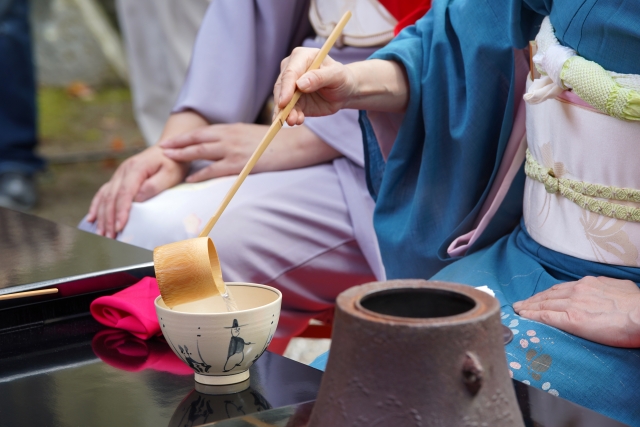
You can experience Ichigo-Ichie in many places during your stay in Japan — on airplanes, at airports, in hotels and ryokan, in restaurants, and in sightseeing spots.
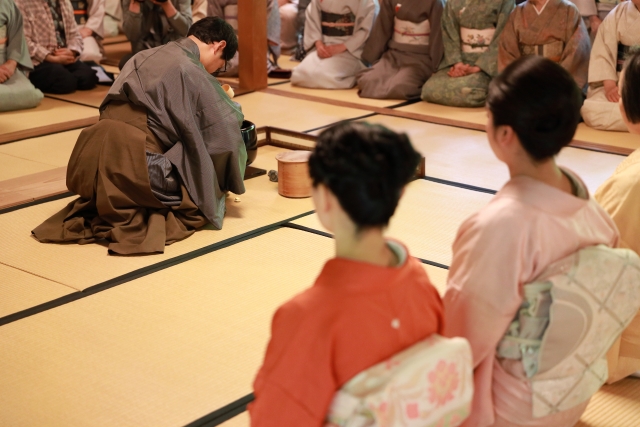
The essence of the Tea Ceremony teaches:
“The time when you (guest) and I (host) meet will never return. Because it is only once in our lives, we should treasure this moment. Therefore, I (host) will serve you with the best I can offer.”
This spirit is not only for the host. Guests, too, are encouraged to appreciate the moment. When both host and guest share this mindset, true hospitality and heartfelt comfort naturally arise.
Step into the World of the Japanese Tea Ceremony
The essence of the Tea Ceremony teaches:
“The time when you (guest) and I (host) meet will never return. Because it is only once in our lives, we should treasure this moment. Therefore, I (host) will serve you with the best I can offer.”
The Japanese tea ceremony embodies the essence of Ichigo-Ichie—a reminder that every meeting is unique and unrepeatable.
For travelers, it offers more than just a taste of matcha; it is a chance to step into a quiet world of tradition, mindfulness, and graceful hospitality.
Each gesture, from the careful preparation of the tea to the way it is served, reflects centuries of cultural wisdom.
If you wish to experience this timeless ritual firsthand, tea ceremony workshops are available across Japan. Guided by local hosts, you can learn the etiquette, taste freshly prepared matcha, and discover how this simple act captures the spirit of Ichigo-Ichie.
・Klook ・GetYourGuide ・Tripadvisor
Share Your Thoughts
Have you experienced something similar in your own culture?
Your reflections are welcome.
💬 Jump to the comment section


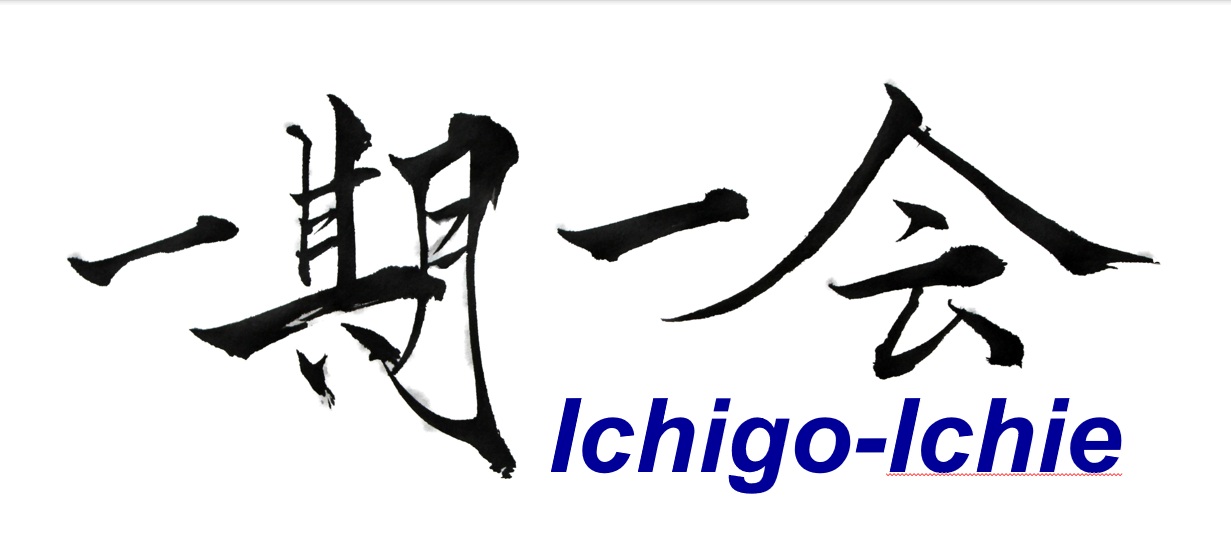


Share Your Experience of Japan